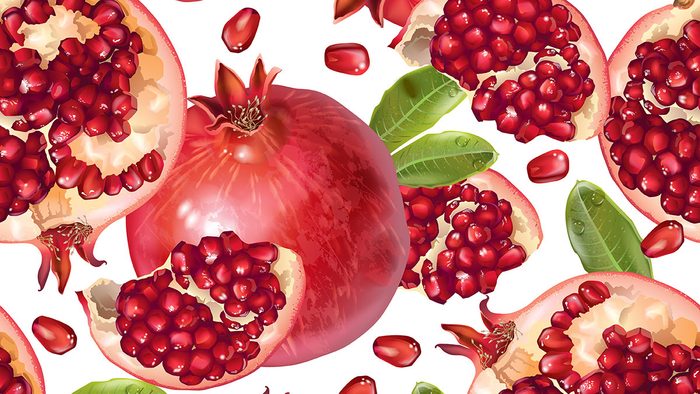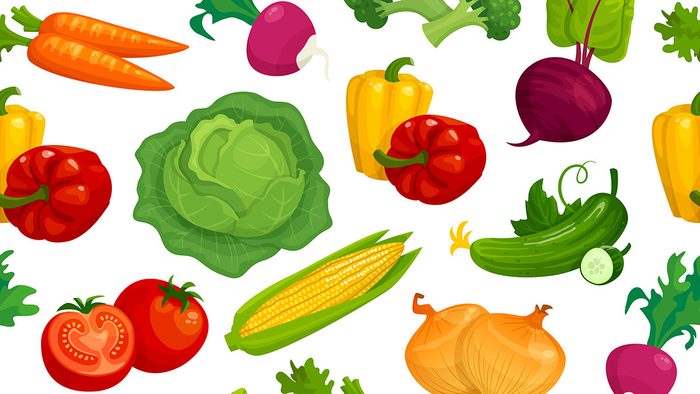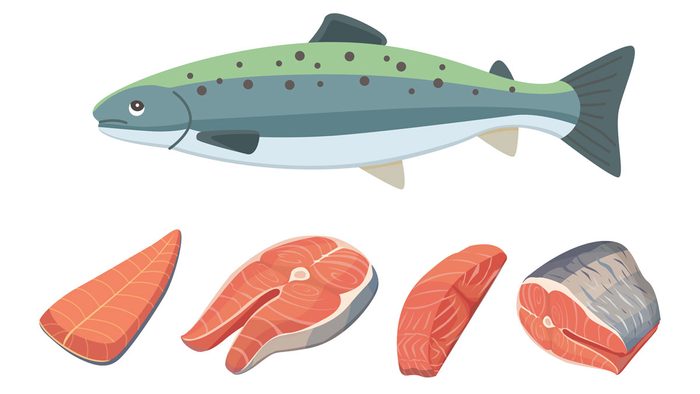
Foods to Reduce Inflammation: Pomegranate
When researchers at Case Western Reserve University in Cleveland put pomegranate extract on samples of cartilage damaged by osteoarthritis, it lowered levels of an inflammatory chemical linked with overproduction of a certain enzyme. This enzyme is essential for cartilage replacement but when too much is produced (as in osteoarthritis), cartilage wears down. Joints likely absorb the juice when you drink it. (Here’s how to deal with frozen shoulder pain—yes, it’s a real thing!)
Aim for: 2-3 tablespoons (30-45 mL) undiluted juice daily.

Foods to Reduce Inflammation: Colourful produce
It’s high in antioxidants and fights free radicals. A Japanese study found that free radicals sabotage the ability of our cartilage to maintain and repair itself. People with arthritis have more than their fair share of free radicals, so they must make an extra effort to get more antioxidants, especially beta-carotene and vitamin C. Here’s a complete list of the top 40 foods high in antioxidants.
Aim for: 5-6 servings of vegetables and 3-4 servings of fruit daily; go for a colourful variety.

Foods to Reduce Inflammation: Fatty fish
Omega-3 fatty acids boost production of “resolvins,” a class of anti-inflammatory fats. They inhibit the activity of inflammatory cells, a good thing for people with osteoarthritis or rheumatoid arthritis (the latter can inflame organs as well as the joints). One out of every 10 Canadians are at risk for osteoarthritis. Are you at risk?
Aim for: 2-3 servings (each 125 grams) a week of fatty fish such as herring, salmon and mackerel. If you don’t like fish, 1-2 tablespoons (15-30 mL) of ground flaxseed daily, or take a fish- or krill-oil supplement.
